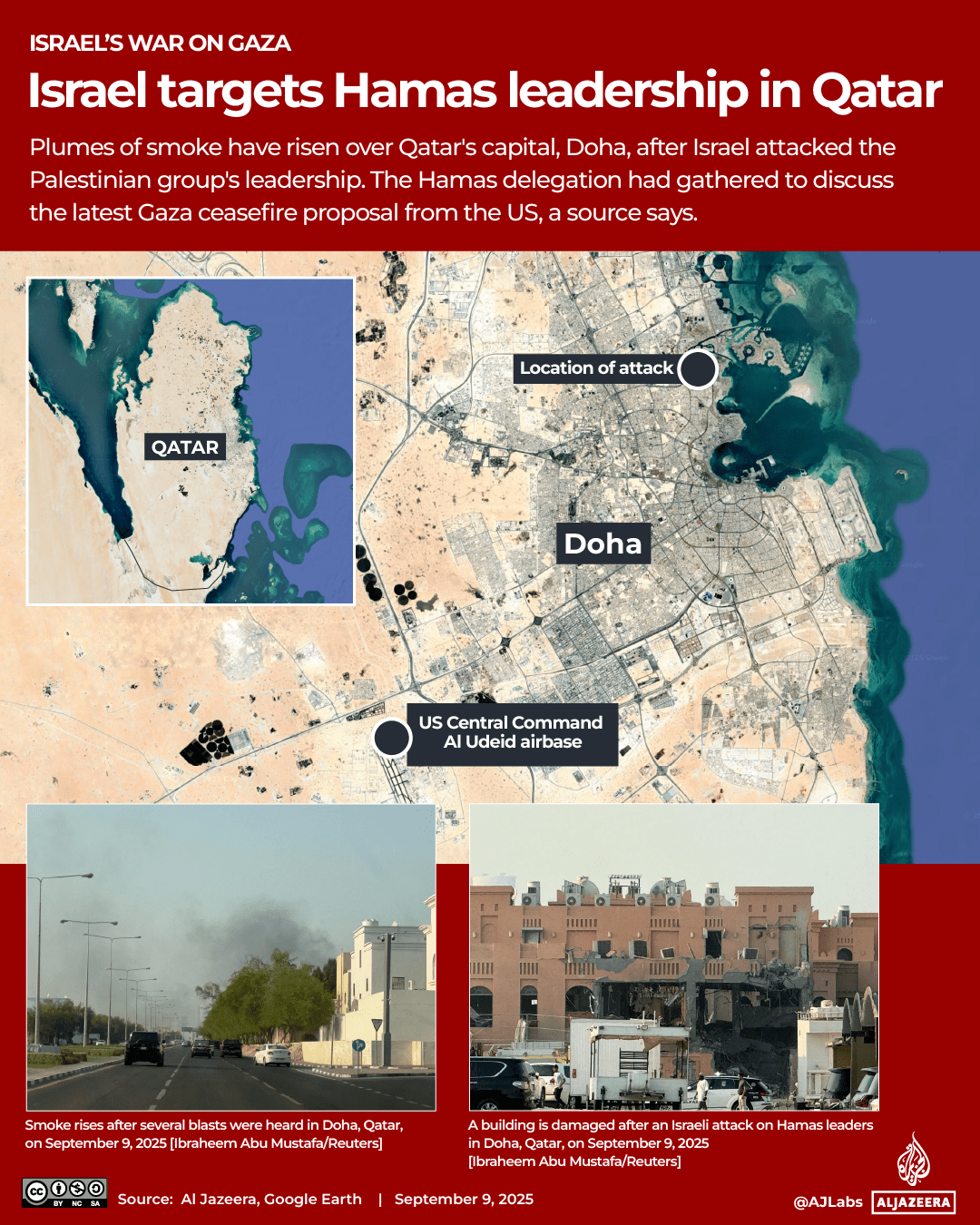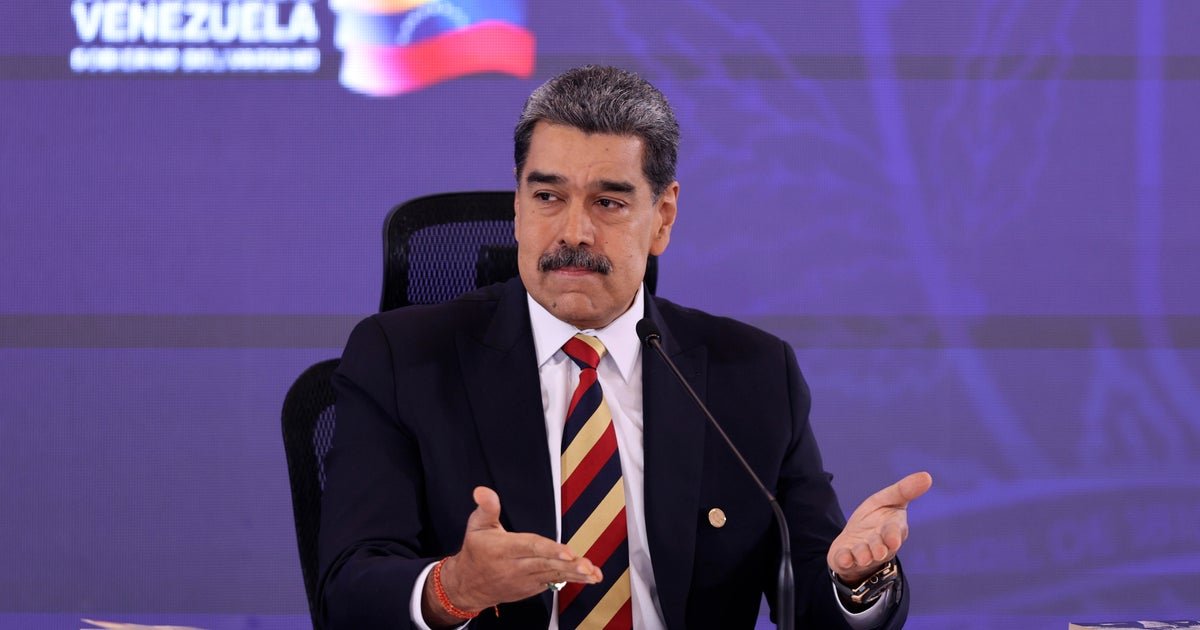Israel Launches Unprecedented Missile Strikes on Doha, Targeting Hamas Leaders Amid Ceasefire Negotiations
In a shocking escalation of regional tensions, Israel conducted missile strikes on Qatar’s capital, Doha, on Tuesday, targeting senior Hamas leaders involved in ceasefire negotiations. This unprecedented military action has drawn widespread condemnation from Qatar and various international entities, raising concerns about the implications for regional stability.
The Attack: A Bold Move by Israel
On Tuesday afternoon, around 3 PM local time, residents of Doha reported hearing multiple explosions, with dark smoke billowing into the sky. The Israeli military confirmed shortly after that it had launched missiles aimed at a compound believed to house Hamas political leaders. This marked the first time Israel has directly attacked Qatar, a nation that has played a crucial role in mediating talks between Israel and Hamas over the past two years.
The strikes occurred in the West Bay Lagoon area, a district known for its foreign embassies, schools, and residential compounds. The attack coincided with ongoing discussions among Hamas negotiators regarding a ceasefire proposal put forth by the United States, highlighting the precarious nature of diplomatic efforts in the region.
Casualties and Immediate Reactions
The aftermath of the attack revealed significant casualties. Among the dead was Humam al-Hayya, the son of senior Hamas leader Khalil al-Hayya, along with one of his aides. Reports indicate that at least one Qatari security official also lost their life, with several others injured. Hamas officials confirmed that the leadership targeted in the strikes survived, but the loss of life has been described as tragic.
Suhail al-Hindi, a member of Hamas’s political bureau, expressed deep sorrow over the casualties, stating, “The blood of the leadership of the movement is like the blood of any Palestinian child.” This sentiment underscores the human cost of the ongoing conflict and the complexities surrounding the negotiations.
Israel’s Justification for the Strikes
Israeli Prime Minister Benjamin Netanyahu defended the operation, asserting that it was a necessary response to ongoing threats from Hamas. In a statement, Netanyahu emphasized that the attack was an independent Israeli operation aimed at top Hamas leaders, whom he accused of orchestrating violence against Israel. The Israeli government linked the strikes to a recent shooting in occupied East Jerusalem that resulted in the deaths of six Israelis, framing the military action as a justified response to ongoing hostilities.
The Israeli Defense Minister echoed this sentiment, stating that the operation was essential given Hamas’s role in the October 7 massacre and its continued aggression against Israel. However, critics argue that the strikes violate international law, breaching Qatar’s sovereignty and territorial integrity.
International Condemnation and Regional Implications
Qatar’s Foreign Ministry swiftly condemned the attack, labeling it a “flagrant violation” of international laws and a serious threat to the safety of its citizens. The ministry’s spokesperson emphasized that Qatar would not tolerate such reckless behavior and is conducting investigations into the incident.
The attack has drawn widespread condemnation from various countries and organizations. Saudi Arabia’s Foreign Ministry denounced the strikes as a brutal aggression, expressing solidarity with Qatar. Similarly, Turkey’s Ministry of Foreign Affairs criticized Israel’s actions, suggesting they indicate a lack of interest in achieving peace. The United Nations Secretary-General, Antonio Guterres, also condemned the strikes, calling them a “flagrant violation” of Qatar’s sovereignty.
Other nations, including Iran, Pakistan, and several Arab states, echoed these sentiments, warning of the potential for further escalation in the region. French President Emmanuel Macron described the attack as “unacceptable,” emphasizing the need to prevent the spread of war in the Middle East.
The Broader Context: A History of Tensions
The recent missile strikes are set against a backdrop of escalating violence in Gaza, where Israeli forces have reportedly killed over 64,600 people since the onset of hostilities in October 2023. The ongoing conflict has drawn international attention and concern, with various nations attempting to mediate a ceasefire.
Qatar has emerged as a key player in these negotiations, leveraging its unique position to facilitate dialogue between Israel and Hamas. The recent attack on Doha raises questions about the future of these diplomatic efforts and the potential for further violence in the region.
Conclusion: A Turning Point in Middle Eastern Diplomacy
The missile strikes on Doha represent a significant turning point in Middle Eastern diplomacy, with potential ramifications for regional stability. As Qatar grapples with the fallout from the attack, the international community watches closely, concerned about the implications for ongoing negotiations and the broader conflict in Gaza.
With tensions running high and diplomatic efforts hanging by a thread, the situation remains fluid. The world awaits further developments, hoping for a resolution that can bring an end to the violence and pave the way for lasting peace in the region.











